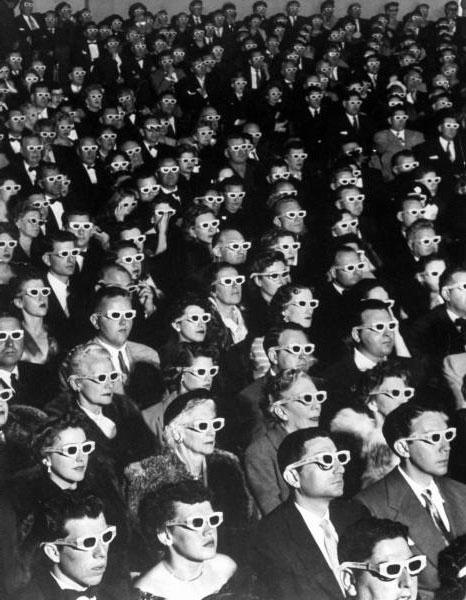How much of the events that we encounter in our political sphere actually happen in the way we think they do? How much of what we know has to do with the narrative formed around it after it happens, if it happened at all?
In 1967, Guy Debord wrote The Society of the Spectacle. The text has become regarded as a foundational text for the Situationist movement, so I don’t think I can do it much justice in a few sentences, but I will try to summarize at least the relevant aspects. In essence, Spectacle refers to the different ways in which competition, especially competition that claims that it is trying to better society, often leads to an irresponsible sovereignty. This is done through different means, but some of the main ones Debord focuses on are false images and sensationalism. One of the big illustrations of these are pseudo-events, or big productions used to illustrate a point or make it seem like something is moving that either did not happen, or did not happen in the way in which they are being pushed.
Populists are savvy users of spectacle. Take Donald Trump for example. The bright, flashy rallies, that make it seem as if something is happening, and give those in attendance a relation to each other, a unified identity. The big, bold, inflammatory claims that misrepresent reality in a way that both makes different events more easily acceptable to his followers and better fits into the narrative he is trying to craft. And perhaps most importantly, the carefully crafted image built on lies of clever business moves, completely void of the truth of a string of bankrupt businesses. He uses all of these as a way to unite the spectacle he creates –often false claims- into a cohesive narrative and identity, just as Debord describes. This cohesive identity is also one of the key elements to populist movements, “the pure people”. The other two are “the will of the people” and “the elite” or “the other”. Trump aligns himself with the will of the people in part by being so in-control of the narrative of the republican party at large, and otherwise by giving people an outlet and common enemy for their frustrations. And while it would be expected that a billionaire would fall into the elites instead of being a rallying point against them, the carefully crafted image of a savvy, crass businessman helps to distract from the massive wealth that aligns Trump more with the elites he is claiming to fight against than his followers.
Populists are good at shifting public narrative, especially surrounding themselves, using spectacle. Ferdinand “Bongbong” Marcos Jr., the president elect of the Philippines has been working to shift the narrative around his family for quite some time now. His shifting narrative, however, is more of a rewriting of history than big showy words. In the past 10 years, the narrative around the horrors committed by Ferdinand Marcos Sr. has been transforming. In Debord’s time, mass media was how spectacle was spread. Today, we are seeing a transition to social media, which is the avenue being used to reform the Marcos image. Bingbong and his supporters have been using social media to spread disinformation and realign Marcos family with the people and the general will, two of three key elements of populism (the people and the will of the people).
While connecting modern populism to a political theory from the 60’s may not seem like the most pressing issue, I would argue that it is important. The problems we face today are not new, they are simply evolutions of problems that have existed for a while now. Since this is the case, it does make it easier to find the root of the cause and fight it that way, instead of just trying to address the symptoms as they pop up.
Works Cited:
Cabato, R., & Mahtani, S. (2022, April 12). How the Philippines’ brutal history is being whitewashed for voters. The Washington Post. Retrieved June 9, 2022, from https://www.washingtonpost.com/world/2022/04/12/philippines-marcos-memory-election/
Debord, G. (1977). Society of the spectacle. Black & Red.
Evans, G. (2022, May 10). Why the Marcos family is so infamous in the Philippines. BBC News. Retrieved June 9, 2022, from https://www.bbc.com/news/world-asia-61379915
Guardian News and Media. (2022, May 18). The return of a Marcos to power in the Philippines is a warning to the world | nicole curato. The Guardian. Retrieved June 9, 2022, from https://www.theguardian.com/commentisfree/2022/may/18/marcos-power-philippines-dicators-son-presidency-social-media
Joe Ferullo, opinion contributor. (2020, October 11). Donald Trump’s illusion and Reality. The Hill. Retrieved June 9, 2022, from https://thehill.com/opinion/campaign/520515-donald-trumps-illusion-and-reality/
Kessler, G., Rizzo, S., & Kelly, M. (2021, February 10). Analysis | trump’s false or misleading claims total 30,573 over 4 years. The Washington Post. Retrieved June 9, 2022, from https://www.washingtonpost.com/politics/2021/01/24/trumps-false-or-misleading-claims-total-30573-over-four-years//
Los Angeles Times. (2022, May 18). Column: A lengthy list of Trump’s disastrous business deals – compiled by his newest business partners. Los Angeles Times. Retrieved June 9, 2022, from https://www.latimes.com/business/story/2022-05-18/trump-business-partners-outline-his-failed-deals
Mudde, C., & Kaltwasser, C. R. (n.d.). Populism: A Very Short Introduction. Retrieved June 10, 2022, from https://www2.daad.de/medien/mudde_rovira_kaltwasser_2017_populism.pdf
Vox. (n.d.). The rise of populism. VOX, CEPR Policy Portal. Retrieved June 9, 2022, from https://voxeu.org/article/rise-populism
Image source: https://libcom.org/article/society-spectacle-guy-debord


0 Comments